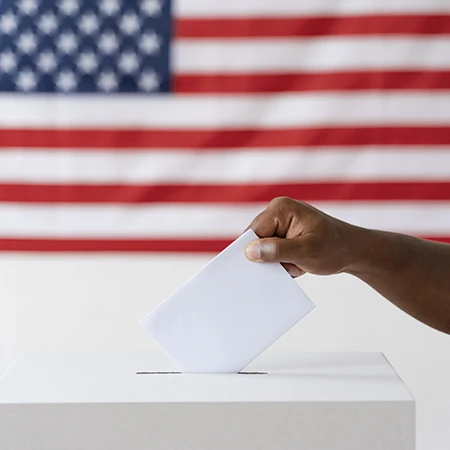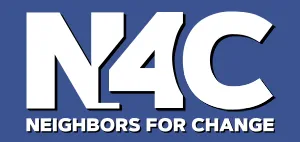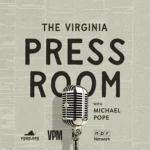
UPDATED 4/14/2025 & 5/7/2025
“Let me be clear: I will not let this noxious bill, the SAVE Act, become law,” Senator Chuck Schumer, (D-NY) said on the Senate floor on Wednesday. “Every single Democrat is united against it. They need 60 votes. The SAVE Act is dead on arrival.”
The current makeup of the Senate is 53 Republicans, 45 Democrats, and two Independents, senators Bernie Sanders and Angus King, both of whom caucus with the Democrats. For bills to pass through the chamber, they need 60 votes, meaning seven Democrats or Independents would have to agree to the SAVE Act in order for it to become law.
Schumer vowed to never let that happen, even if the bill is brought to the floor for a vote.
On April 10th, the House of Representatives approved the Safeguard American Voter Eligibility (SAVE) Act in a 220-208 vote, with four Democrats joining every Republican present in support of the measure. The fate of the House’s bill is uncertain in the Senate. With a 53-47 majority, Senate Republicans would need Democratic support to overcome the 60-vote threshold to advance the bill to a final vote and ultimately send it to Trump to sign into law
The SAVE Act would:
- Require all American citizens registering to vote or updating their registration information to present documentary proof of citizenship in person. For the vast majority of Americans, this would be a passport or birth certificate.
- Government-issued driver’s licenses—including REAL IDs—as well as military or tribal IDs do not satisfy the bill’s requirements
- The SAVE Act would change the way all citizens register to vote upon enactment. It would upend online voter registration, make it impossible to mail in a registration application, and eliminate voter registration drives.
What is the SAVE Act?
The Safeguard American Voter Eligibility (SAVE) Act, or H.R.22, is legislation that would require Americans to provide documentary proof of citizenship, in person, when they register to vote and every time that they update their voter registration information. If the bill becomes law, the vast majority of Americans would need to use either 1) a passport or 2) a birth certificate in combination with government photo ID to prove their citizenship status. The SAVE Act applies to all voter registration methods, but in place of current online or mail-in registration, it would require Americans to physically travel to their designated election office, during business hours, to present their documentation to an election official.
Hasn’t the House of Representatives already passed this? Did our Congressman, Rob Wittman (R-01) co-sponsor the SAVE Act?
The SAVE Act was originally introduced in the 118th Congress as HR8281. When this bill was introduced in 2024, it passed in the House but did not make it to the Senate floor for a vote. Our Congressman, Rob Wittman (R-01) not only voted for it, he also joined as a co-sponsor.
The 119th Congress reboot of the SAVE Act, H.R. 22, is currently in committee, meaning it has not yet been voted on by the full House of Representatives. However, it is one of 12 bills identified for fast tracking so a floor vote is expected soon. Wittman (R-01) has not signed as a co-sponsor this year and there is still time to let him know what you think about how he should vote this time around and request that he not join as a co-sponsor again. A companion bill, S.128, has also been filed in the Senate where it would likely need to overcome the filibuster.
Why are people concerned? What’s the big deal – shouldn’t we have to prove citizenship to register to vote?
First, what is the impact on state election officials and budgets? H.R. 22 makes it harder to register to vote and harder/more expensive for states to handle voter registration updates. Around 80 million people register or renew registration due to address or other changes in a Presidential election year so this is not a minor inconvenience.
- The SAVE Act would effectively end online voter registration and election day voter registration since it requires documentary proof be presented in person to an election official. This would render the online voter registration systems currently running in 42 states useless, forcing election officials to revert to more far more costly and labor-intensive in-person registration.
- The SAVE Act would end third party voter registration drives. Since only a government official can review and accept the proof of citizenship, third party groups that currently handle a huge volume of registrations would no longer be able to collect voter registration forms.
- The SAVE Act would overwhelm election officials, leading to long lines for voters and dramatically increased costs for state and local governments. As of 2022, only 5.9% of voters registered to vote in person at election offices. While 55% of registrations are collected through motor vehicle departments, the vast majority of states now do license renewals online. This is essentially an unfunded mandate that will cost Virginia millions of dollars in system updates and personnel costs.
- The SAVE Act would put election officials in a legally precarious situation. If the bill were to become law, election officials could be held civilly and criminally liable for registering someone who did not provide documentary proof of citizenship, even if the official made an honest mistake and even if the person who registered was, in fact, a citizen. These penalties are particularly problematic because the SAVE Act also purports to give local election officials discretion to determine whether an applicant lacking the required documents has otherwise provided sufficient evidence of their citizenship status to register.
Then there’s the discriminatory human consequences and disenfranchisement of large blocks of voters to consider.
- The SAVE Act would have a highly discriminatory impact on voters, disenfranchising tens of millions of eligible citizens. Even if the documents could be submitted online, over 21 million otherwise eligible American voters don’t have these proof of citizenship documents readily available. Both income and education level are major factors determining whether or not someone has a passport. Approximately 146 million American citizens do not possess a valid passport—for context,153 million Americans voted in the 2024 presidential general election. Birth certificate requirements, for those voters who can find them, are also problematic. People could be barred from voting because of birth certificate name mis-matches if they took their spouse’s name or changed their name for other reasons. Among the various groups impacted, as many as 69 million American women do not have a birth certificate with their legal name on it.
- The SAVE Act is essentially a poll tax that will discourage people from registering to vote because of the fees required to replace or apply for the required documentation. Getting replacement or updated birth certificates or applying for a passport may require time away from work, and application fees. For example, in Virginia, a birth record amendment can be done online, but there is a fee to get an updated birth certificate – typically around $10 for the update, plus the standard birth certificate fee of $12 per copy; meaning you would pay a total of $22 to receive an amended birth certificate. A new passport application must be done in person and requires a fee of $130 and takes 4-6 weeks.
- The SAVE Act will make registering to vote a genuine hardship for rural Americans and those who depend on public transportation. Rural Americans with the longest commute from their county seat would have to drive, on average, 4.5 hours round trip and travel 260 miles to show election officials their proof-of-citizenship documents. In Hawaii this can include the need for a plane ticket. Urban Americans who rely on public transportation would be forced to commute, on average, up to two hours using public transportation round-trip. Click here to read more and see the data and graphs.
- The SAVE Act would compel voter roll purges that are bound to sweep in eligible American voters. In the extremely rare instance when a noncitizen does get registered (usually because of a misunderstanding or because they were misled about their eligibility), they should be removed from the rolls. But the SAVE Act would require voter purges without appropriate guardrails. For example, it would not require officials to notify registered voters before their removal, so Americans who are improperly purged might not find out until election day. Citizenship status can also change over time. In 2024, 800,000 people became naturalized U.S. citizens. That means the data used to initiate the purge process could be out of date, making the absence of notice to the registered voter especially problematic.
I’ve heard we’ll be able to use our Real ID instead of a birth certificate or passport – is this true?
Government-issued driver’s licenses—including most REAL IDs —as well as military or tribal IDs do not satisfy the bill’s requirement. The SAVE Act claims that Americans could use a REAL ID so long as it “indicates the applicant is a citizen of the United States.” No federal law, including the REAL ID Act of 2005, requires REAL ID licenses, driving or non-driving, to indicate citizenship status. In addition, legally residing noncitizens can obtain REAL ID in all 50 states. Nearly all Americans would be unable to use their REAL ID as documentary proof of citizenship, as their REAL ID licenses do not indicate their citizenship status. This is true in all but 5 states, including Virginia.
Can the SAVE Act be improved upon or is there a better way to handle proof of citizenship?
We think everyone agrees that voter registration should permit all eligible citizens—and only eligible citizens—to register and vote. The SAVE Act’s goal of ensuring that only citizens can register to vote is an important one. But, according to the Bi-partisan Policy Center, there are easier, more cost-effective ways to improve voter registration that don’t create new barriers for eligible voters. For example, citizenship checks could be improved through adoption of REAL ID standards and improved data sharing between state departments of motor vehicles, the Federal Systematic Alien Verification for Entitlements database maintained by the Department of Homeland Security and state election offices.
Take Action
- Call Congressman Rob Wittman (R-01) and tell him the SAVE Act would hurt voters and VA State Election officials
Learn More
- American Progress | The SAVE Act Would Disenfranchise Millions of Citizens
- Non Profit Vote.org | Tell Congress to Reject the SAVE Act
- American Progress | The SAVE Act Would Force Many Rural Americans To Drive Hours To Register To Vote
- Brennan Center for Justice | House Bill Would Hurt American Voters
- Brennan Center for Justice | SAVE Act Would Undermine Voter Registration for All Americans
- Campaign Legal.org | What You Need to Know About the SAVE Act
- Ace-USA.org | An Impartial Look At The SAVE Act And Voter Eligibility Debate
- Institute for Responsive Government | The SAVE Act: How a Proof of Citizenship Requirement Would Impact Elections
- Bipartisan Policy Center | Five Things to Know About the SAVE Act




